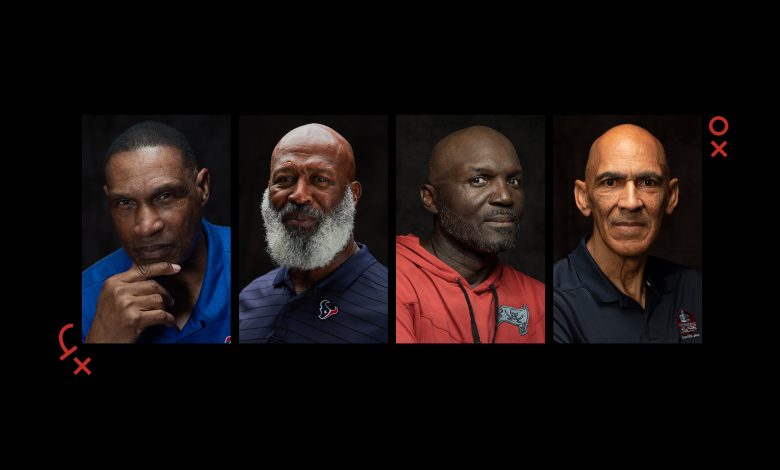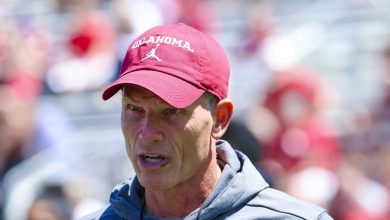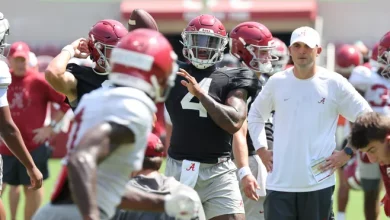Jerry Jones has been criticized for not hiring an African-American head coach in his tenure with the Dallas Cowboys. This has sparked ongoing debates about race and diversity in the NFL.

In the world of professional sports, few team owners are as well-known or as polarizing as Jerry Jones, the owner and general manager of the Dallas Cowboys. A key figure in the NFL for over three decades, Jones has overseen the team’s success and failures, but his approach to hiring coaches has become a focal point in ongoing discussions about race and diversity in the sport. Specifically, the criticism directed toward him for not hiring an African-American head coach has sparked debates about systemic barriers in the league and the broader issues surrounding race in America.
Jerry Jones’s Background in the NFL
Jerry Jones purchased the Dallas Cowboys in 1989, and he quickly became one of the most influential and powerful owners in the NFL. Under his leadership, the Cowboys have seen considerable success, including winning three Super Bowls in the 1990s. Jones’s business acumen and larger-than-life personality have made him a central figure in the NFL, often attracting media attention for his decisions both on and off the field.
However, despite his prominence, Jones’s record regarding diversity in coaching staff has been a point of contention. While the NFL has long been under scrutiny for its lack of diversity, especially when it comes to head coaching positions, Jones’s decisions are often highlighted as emblematic of the league’s struggles to make meaningful changes.
The Historical Context of Diversity in the NFL
To understand the gravity of the criticism leveled at Jones, it’s important to look at the broader historical context of race and diversity in the NFL. The league, like many other professional sports leagues, has been predominantly white at the top levels of leadership and coaching for much of its history. The first African-American head coach in the NFL was Fritz Pollard, who coached the Akron Pros in the 1920s, but it wasn’t until the 1980s that the league began to see an increase in minority coaches.
The hiring process for head coaches in the NFL has been historically exclusionary. The Rooney Rule, implemented in 2003, required teams to interview at least one minority candidate for head coach or senior football operations positions. While the rule was seen as a step in the right direction, its implementation has been widely criticized for being ineffective in creating true diversity. Many teams have simply complied with the letter of the rule by conducting token interviews without serious intent to hire minority candidates.
By the time Jones became a team owner, the NFL was already embroiled in the conversation about race and the lack of minority representation in leadership roles. Over the years, the league’s commitment to diversity has been inconsistent, and its record on hiring African-American head coaches has been an ongoing point of criticism.
Jerry Jones’s Coaching History
Despite the pressures of diversity advocates and the public discourse on race in the NFL, Jerry Jones has not hired an African-American head coach in his tenure with the Cowboys. In fact, all of the Cowboys’ head coaches under Jones have been white. Notable figures like Jimmy Johnson, Barry Switzer, Chan Gailey, Dave Campo, Bill Parcells, Wade Phillips, Jason Garrett, and Mike McCarthy have all been given the reins as head coach, while African-American candidates have rarely been considered for the position.
While Jones has always maintained that his decisions are based on the best interests of the team and that he hires coaches based on merit, the absence of an African-American head coach in the Cowboys’ history has led to accusations of racial bias. Critics argue that Jones’s reluctance to hire a minority coach reflects the larger issue of racial inequality in the NFL.
Furthermore, Jones’s business-centric approach to team management has often led him to make decisions that are perceived to be based on the image and culture he wants to project, rather than on a broader commitment to diversity and inclusion. His past statements on race and coaching decisions have sometimes exacerbated the perception that he is not fully engaged with the issue of race in the hiring process.
The Perception of Jerry Jones and His Relationship with African-American Coaches
The perception of Jerry Jones as someone who is not committed to hiring an African-American head coach is not only shaped by his actions but also by his relationships with minority players and staff. While Jones has historically been seen as someone who champions the interests of his players, especially when it comes to their financial wellbeing, his public stance on issues related to race has been less clear.
Jones has been known to support his players when they voice their opinions or push for certain changes, but he has also been criticized for being slow to speak out on key social justice issues, particularly when it comes to the protests led by Colin Kaepernick and other NFL players. His response to the national anthem protests, which called attention to police brutality and racial inequality, was seen by many as dismissive. Jones famously stated that he would not allow players to kneel during the national anthem and that any player who chose to do so would face consequences. His stance drew backlash from many who felt that he was not engaging with the deeper issues of racial injustice that the protests were meant to highlight.
This attitude toward social justice issues, coupled with his hiring practices, has led some to view Jones as out of touch with the need for greater diversity and inclusivity in the NFL. The lack of African-American head coaches in the league has been widely criticized, and Jones’s failure to hire one in his own organization has contributed to this broader narrative of systemic discrimination in the sport.
The Lack of African-American Head Coaches in the NFL
As of recent years, the NFL has made some strides toward improving the representation of African-American coaches, but the numbers still remain dismal. At the beginning of the 2024 NFL season, there were only three African-American head coaches: Mike Tomlin of the Pittsburgh Steelers, Lovie Smith (who was with the Houston Texans but was let go after the season), and Todd Bowles of the Tampa Bay Buccaneers. These three coaches represented only a small fraction of the league’s head coaching positions, and their presence has often been seen as the result of sustained advocacy rather than any systematic changes within the league.
Many minority candidates continue to face barriers when it comes to breaking through the so-called “glass ceiling” in the NFL, with many facing resistance from team owners who tend to hire from a small pool of well-established candidates. African-American coaches are often passed over for positions in favor of candidates who are either more well-known or have better networking opportunities, perpetuating the cycle of exclusion.
Jerry Jones’s hiring history reflects these systemic issues, as the Cowboys have often leaned toward hiring coaches with ties to Jones himself or those with established reputations in the coaching ranks. This trend has further fueled the perception that Jones’s hiring practices are influenced by factors that may not fully embrace diversity.
The Impact of Public Criticism and the Future of Diversity in the NFL
Public pressure and criticism have forced many owners, including Jerry Jones, to confront the issue of diversity within their organizations. While Jones has maintained that his decisions are not racially motivated, the lack of a concrete commitment to diversity has prompted many to question whether the NFL can truly create a culture of equality when the hiring practices of its most powerful figures remain unchanged.
There is hope that as more African-American coaches succeed in the NFL, the league will begin to evolve. With the rise of young coaches like DeMeco Ryans, Eric Bieniemy, and others, there are signs that the landscape may slowly be changing. Additionally, the NFL has continued to implement programs like the Rooney Rule to encourage teams to hire more diverse candidates, though it remains to be seen whether these measures will have a lasting impact on the league’s coaching ranks.
For Jerry Jones and the Cowboys, the pressure to hire an African-American head coach continues to grow. The public debate surrounding his past decisions on coaching hires is a reflection of a larger conversation about race in America and how institutions like the NFL can either perpetuate or help dismantle systemic inequality. Only time will tell if Jones, one of the NFL’s most influential figures, will take meaningful steps toward diversifying his coaching staff and if other owners will follow suit.
In the meantime, the conversation about race, diversity, and the future of African-American coaches in the NFL remains a critical and evolving issue—one that demands attention, discussion, and ultimately, change.









